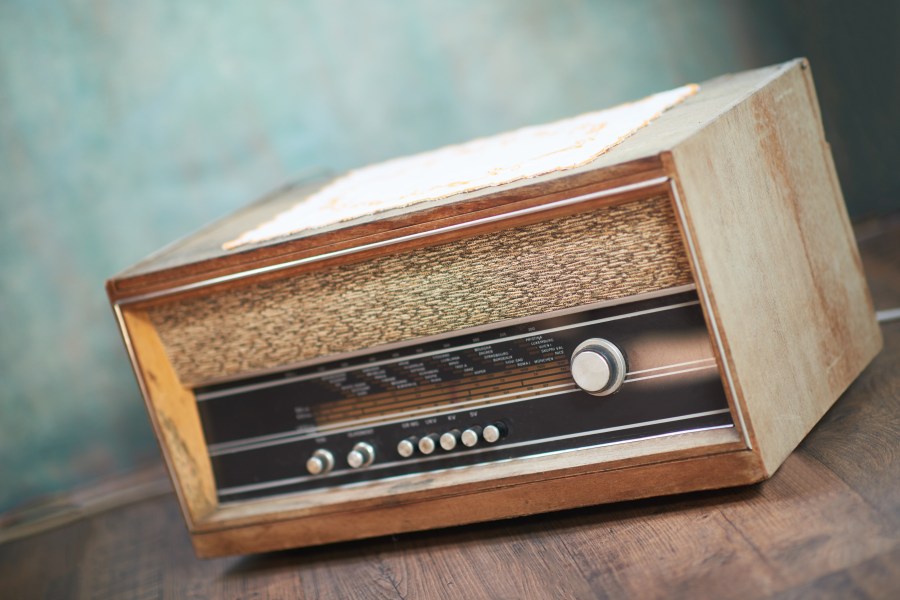HONOLULU (KHON2) — On National Radio Day, we shine a spotlight on Michael W. Perry, a legendary figure in Hawaiʻi radio.
For 52 years, Perry has been a cornerstone of the local broadcast industry, capturing the hearts of listeners across the islands.
Known for his vibrant personality and enduring presence, Perry’s journey in radio is both remarkable and inspirational.
Perry’s radio career began in 1972 when he moved to Hawaiʻi after serving as a Lieutenant in the U.S. Navy Pacific Submarine Force.
His first big break came at 92.3 KSSK, where he dominated the airwaves as Hawaiʻi’s number one afternoon radio personality for 11 years.
In 1983, he teamed up with Larry Price to create the Perry and Price Morning Show, which quickly became a staple for morning listeners.
The Perry and Price Morning Show, which continued until Price’s retirement in 2016, was a massive hit, and Perry has continued to lead the ratings with his show, Perry and the Posse.
Remarkably, Perry has held the top spot in morning radio locally for 41 consecutive years, and his influence spans over 52 years when including his afternoon show.
In a recent conversation, Perry shared insights into what makes radio in Hawaiʻi so unique.
He noted, “In Hawaii, we innovated and were successful because we didn’t know what we were doing. There was nobody to compare it to, so we just did what felt right. That freedom led to a lot of creativity.”
Hawaiʻi radio’s success, Perry believes, stems from its deep connection with the community.
“We provide what the community wants,” he said. “Whether it’s during an emergency or just a regular day, we reflect what’s happening around us. We’re like humans on the radio reacting to the world.”
Perry also highlighted how local culture and car culture play significant roles in the popularity of Hawaiʻi radio.
“Back after the war, when TV became popular, radio shifted to being part of people’s daily routines. Cars became crucial, and that’s where we reached people—on their drives to work and school,” he explained. “Even with modern changes like rail systems, people still spend a lot of time in their cars, and that’s where radio stays relevant.”
One unique aspect of Hawaiʻi’s radio scene is its cultural diversity. Perry noted that this diversity fosters unity rather than division.
“In the seventies, when Hawaiian music was experiencing a renaissance, radio was at the forefront. We promoted local artists like C&K and the Beamers, spreading their music far and wide,” he said. “The cultural diversity here has helped us come together through shared experiences and humor. Making fun of each other’s quirks has only strengthened our bond.”
As technology evolves, Perry sees the role of radio adapting but staying fundamentally the same.
“Radio has changed a lot, but it hasn’t changed at all,” he remarked. “We still aim to entertain and inform, just in new ways. Whether it’s through streaming or podcasts, we’re here to connect with our audience.”
Perry also shared his perspective on the impact of radio during emergencies. Reflecting on the recent Maui wildfires, he emphasized radio’s critical role in providing information.
“During emergencies, when power and cell service are down, people rely on their car radios,” Perry said. “We stepped up to deliver crucial updates and support when other sources fell short.”
For Perry, radio is more than just a medium; it’s a companion to its listeners.
“Radio is your friend,” he said. “It’s with you during your commute, in your cubicle, and even when you’re feeling a bit crazy. The future of radio is bright, and I’m proud of the role we play in Hawaiʻi’s media landscape.”
Perry’s journey is a testament to the enduring power of radio in connecting people and shaping community culture.
You can watch Perry’s full interview in the video above.
As we celebrate National Radio Day, it’s clear that his legacy is woven into the very fabric of Hawaiʻi’s broadcast history. Whether through his iconic morning show, his advocacy for local talent, or his community service, Michael W. Perry has left an indelible mark on radio in Hawaiʻi.
